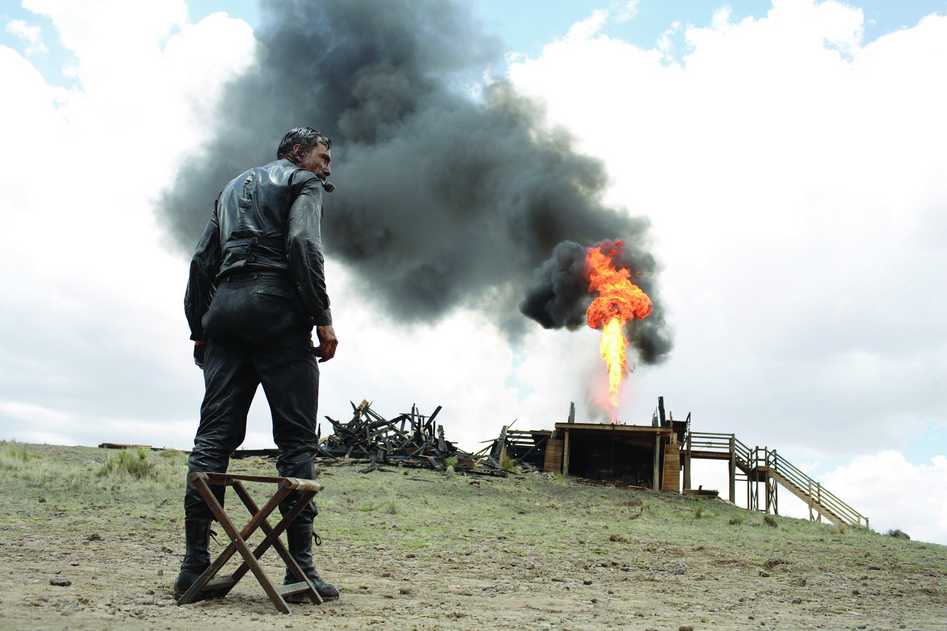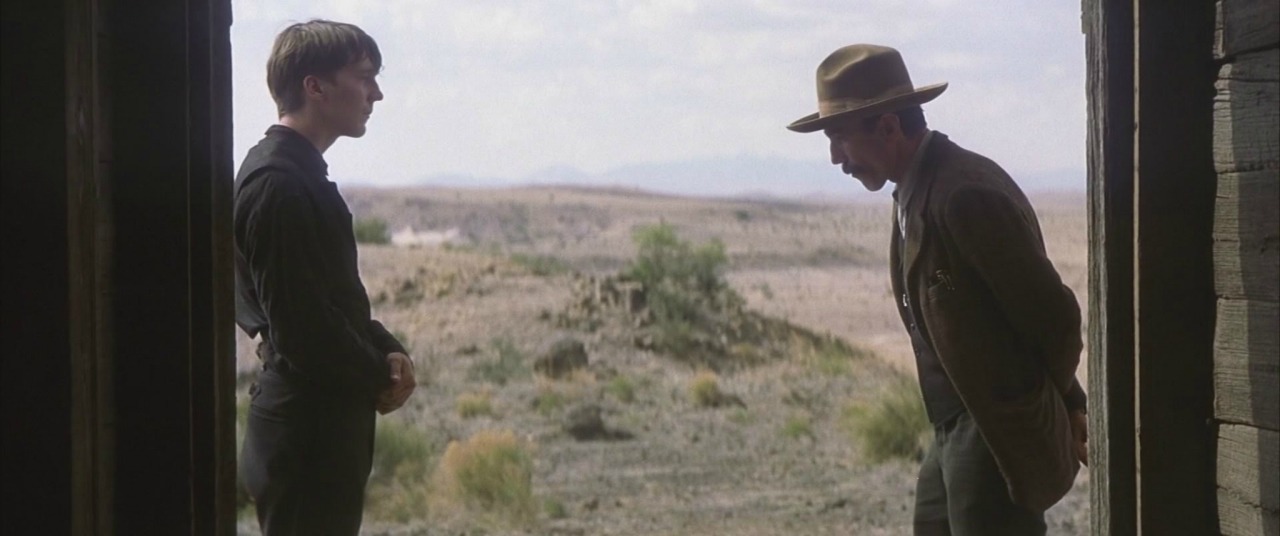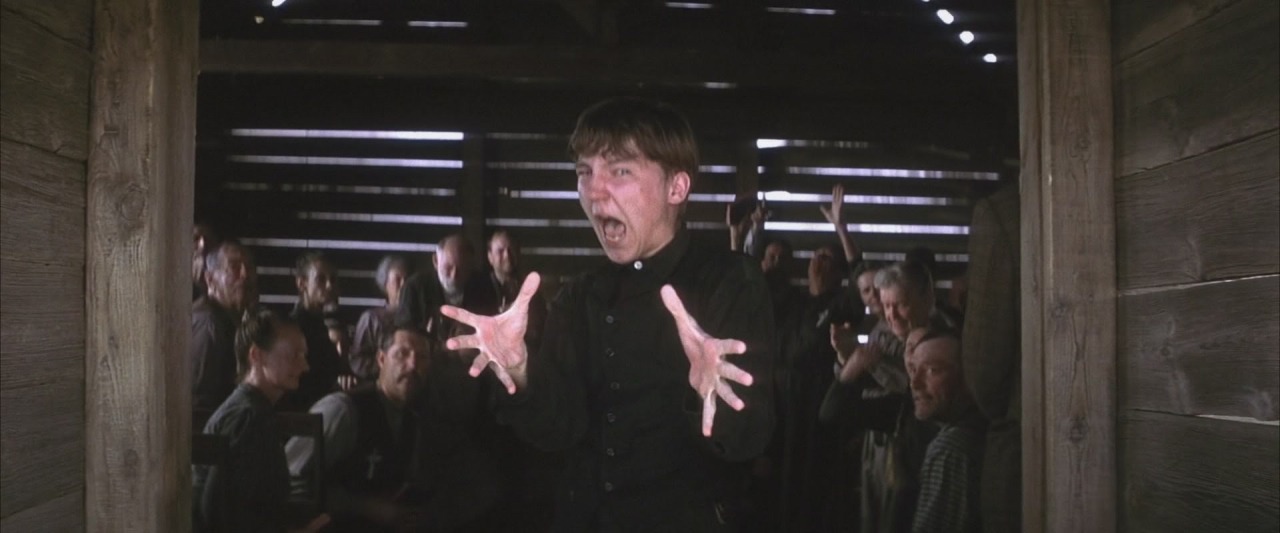We at Deadshirt like to fancy ourselves pretty dedicated to popular culture with a combined knowledge of all things media that borders on the encyclopedic, but no one is perfect. There’s just too much music, too many films, too many comics, and way too many television episodes out there. No longer will we have to harbor the secret shame of not having experienced an expected work. Here is where we fill in the missing gaps. This week we look at the film There Will Be Blood with David Uzumeri…
I’ve enjoyed a lot of movies, but it’s not until recently that I’ve really wanted to start trying to make understanding, analyzing, and truly absorbing cinema a personal thing. My experience with Paul Thomas Anderson before this was pretty minimal: a DVD viewing of Magnolia that I barely remember at this point (other than having a gigantic high school crush on Julianne Moore) and seeing Punch-Drunk Love in the theaters in university, which I similarly barely recall. This is basically my awkward first step into the world of really writing about movies, so I’m going to be learning as I’m going. I’ve also intentionally avoided reading other criticism before writing this piece; the point of a hindsight-facing reaction piece would be lost if I just regurgitated the canon at this point, so I might end up making points here that others find obvious or facile. I’m comfortable with that.
When There Will Be Blood came out in 2007, it flew completely under my radar; I was basically partying too hard to consider sitting through what I imagined to be a laborious three-hour meditation on American history and lots of desert and moustaches, or something. I’d already seen No Country For Old Men that year and been bored to tears by it, so I figured I’d reached some kind of quota fulfillment for High Cinema and called it a wash. Well, it’s 2015, I’ve watched it, and I’m pretty sure it won’t be a stupendous plot twist in my argument when I point out that 23-year-old me was full of shit.
There Will Be Blood is the story of Daniel Plainview (Daniel Day-Lewis), a self-described oilman who personally transforms the rustic community of Little Boston, California into a thriving city based entirely on his company and product, and his rivalry for that town’s heart with Eli Sunday (Paul Dano), a theatrical revivalist who has a different yet no less all-encompassing vision for the town based on God rather than Mammon. The two of them match wits and tongues for the course of the film, battling each other for the soul of Little Boston while using everyone else as their pawns until the narrative terminates in the kind of tragedy that seems utterly inevitable.
There Will Be Blood is the sort of unified vision that—due to my roots in comics criticism—reminds me the most of the kind of work you get out of a singular writer/artist, which makes sense since here Anderson acts as both writer and director. It doesn’t feel like a script as finished work later realized for the screen so much as its own fully-realized beast, unafraid to let the shots tell the story. When Daniel reunites with his “son” after abandoning him, the camera wisely keeps the pipeline he’s building simultaneously as the focus; it speaks more about his motives and state of mind than any dialogue ever could. It’s the kind of visual storytelling you usually find with either lifelong collaborators—a Morrison and Quitely, or Brubaker and Phillips—or, more commonly, a singular writer/artist like Frank Miller or pre-Gerhard Dave Sim.
Of course, as much as Anderson masterminded the story and played puppetmaster with the individual parts (and as important as his selection of those parts is), it’s hard to imagine the movie being anywhere near as effective without actors Daniel Day-Lewis and Paul Dano, and composer Jonny Greenwood. Day-Lewis and Dano consistently display a thespian virtuosity that bares gleaming white fangs but somehow manages to stop short of plunging them into the scenery; you could barely call their performances understated, especially when their characters are drunk on whiskey and God, respectively, but they always manage to approach the line without crossing it, consistently asymptotic, like a perfect game of Mario Golf or Links 2000. They’re both actors playing characters that are acting to the world, and it’s a level of nuance and complexity in which they both thrive.
Greenwood is similarly indispensable; Radiohead’s guitarist-cum-guy-who-moves-patch-cords-around-to-the-beat-during-“Idioteque” acquits himself incredibly well, scoring the movie with old sounds in contemporary arrangements. This leads to tense rustic cacophonies that mirror the visuals and the storytelling: familiar parts in new arrangements, the elements of the early 20th century mixed with and mirroring the reality of the early 21st.
It’s hard not to watch this movie and not see its sociopathic “protagonist” and the oil rush he represents in the modern-day silicon rush. Replace oil with advertising revenue and Eli Sunday’s devout fervor with hipster freeganism and you could just as easily set this movie in the same place in California a hundred years later. This almost lends a certain irony to Anderson’s later financial teaming with Megan Ellison, perhaps the most famous child and scion of the modern-day Silicon Valley nobility, for his next movie, the Scientology-baiting The Master (which I’m really excited to see at this point). It’s a story about American capitalism and manifest destiny run amok, the lucky riding roughshod over the unlucky, about the dangers of gentrification and abuse of power. These are themes that should probably ring a few bells for anybody who’s been paying attention to the vector our civilization is travelling on and, as this movie powerfully demonstrates, has been travelling on for a long, long time.
So, uh, it probably goes without saying that I really enjoyed There Will Be Blood a lot. It’s long, but it doesn’t meander; it’s paced deliberately, but isn’t slow. It has a musicality to it, the peaks and valleys, tension and release, that marks the best kind of art. I’m sad I took seven years to see it, but I’m glad I waited until I was ready. If the stuff I’m talking about here turns your crank and you’ve missed out on it too, I can’t imagine you’ll feel differently. It’s the kind of thing I feel I can recommend unreservedly. It’s powerful, it’s clever, it’s engrossing; it’s nuanced, it’s layered, it’s meaty. I’ve barely scratched its surface. It lived up to the hype.



